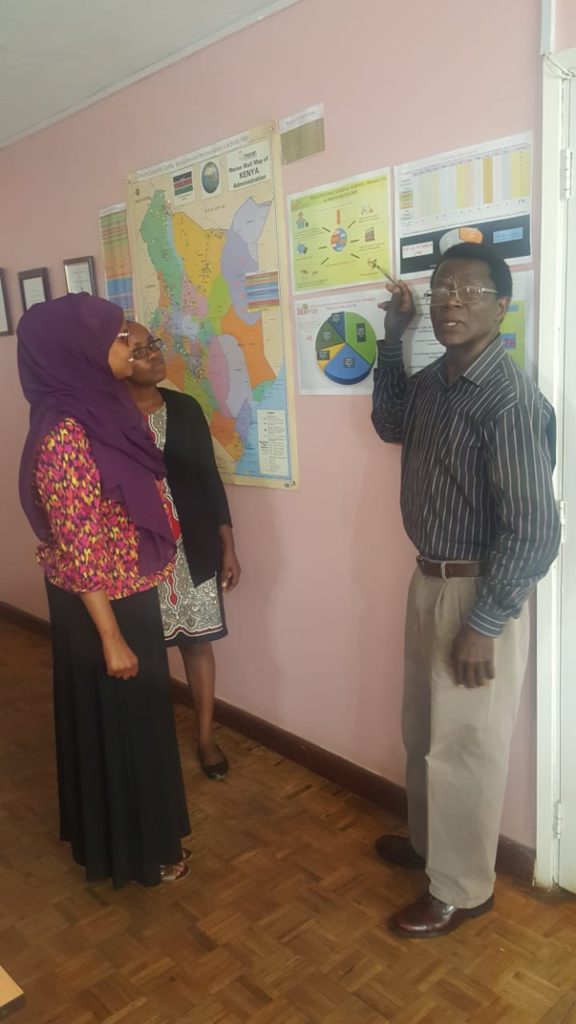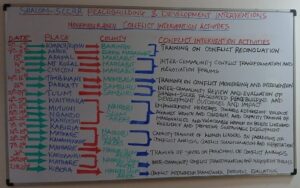BY PROF. WANAKAYI OMOKA, PhD, SHALOM-SCCRR, DIRECTOR OF RESEARCH
Peacebuilding is not new to Africa. It long antedates the creation of colonial states. In post-colonial states time it was popularized in the 1992 publication, An Agenda for Peace (1), by the first African United Nations Secretary General, Egypt’s Boutros Boutros Ghali. The publication accented political and economic aspects in peacebuilding. Thirteen years later Boutros Ghali’s successor, Ghana’s Kofi Annan (2005) in Larger Freedom: Towards Development, Security and Human Rights for All expressed a view that resonated with that of Boutros Boutros Ghali: ‘Humanity will not enjoy security without development, it will not enjoy development without security, and it will not enjoy either without respect for human rights’’(2). Five years later Equatorial Guinea’s Jean Ping (2010), in his capacity as chairperson of African Union Commission, in a similar vein put the matter this way: ‘‘Africa’s attention to peacebuilding reflects the continent’s recognition that peace is the foundation of prosperity’’(3).

Prof. Omoka discussing the linkages of conflict analytical paradigms to sustainable peace and development, with Asha Awed, MA Candidate and Esther Kibe, MA at the SCCRR- Center, Nairobi
It stands to reason that not only diplomatic and military tools are employed in building peace; today peacebuilders also focus on the political, social and economic causes of conflict, as well as the need to promote socio-economic justice. And that is where Shalom-SCCRR comes in focusing specifically on the social and economic aspects of conflict, as well as the need to promote socio-economic justice. SCCRR engages in initiatives and activities that embody its objectives that resolve around peacebuilding. The engagement in the form of livelihood enhancing operations (or facilitating projects thereof), as well as imparting to locals knowledge that enables understanding environmental (natural and social), personality, and contingent causes of structural violence and localized inter communal physical violence is carried out within the purview of paradigmatic conflict/peacebuilding perspectives (4). Structural violence is social injustice, that is, negative peace; and as a target for peacebuilding, its attenuation – if not elimination calls for programmes to encourage inclusive access to resources and institutions, to empower marginalized groups. To end discrimination against women and other disadvantaged groups, to redistribute income and –in some cases -land. SCCRR is involved directly or indirectly in contributing to these counter social injustice efforts.
Human behaviour which is most important is that which has social consequences. The thrust of SCCRR’s research component is individual/social behaviour in so far as it is measurable, focusing on causes and consequences. Behaviour is caused by needs and wants, rather than deprivation. Deprivation is problematic to measure, whereas need and want easily lend themselves to measurement. The main site of SCCRR’s operations (that is, practicing peacebuilding and making peacebuilding) is the conflict between pastoral communities and related conflicts in Inter Governmental Authority on Development (IGAD) countries.
Susceptibility of locals of pastoral communities to reinforcement by (i) territorial gains/control, stemming from aggression, (ii) bodily damage ( injury and/or death) inflicted upon the community other, (iii) a tendency to attribute hostile motivations to the behaviour of the community other, (iv) politicization of intercommunal interaction at certain times, (v) acquisition of livestock through force, (vi) exclusive access to resources, and (vii) revenge aggression, all shape and maintain disorder in the form of localized intercommunal conflict.
[1] Boutros –Ghali, Boutros. An Agenda for Peace: Preventive Diplomacy and Peace making and peace-keeping. New York: United Nations. UN Doc. a/47/277-524111, June 17, 1992. [2] United Nations. In Larger Freedom: Towards Development, Security and Human Rights for All. Report of the Secretary General Assembly, 59th Session: March 21, 2005. [3] Ping, Jean.’’ Take a Stand for Africa’s Peace” Sunday Independent (South Africa), July 18, 2010. P.15 [4] Devine, P. Introduction to Paradigms of Conflict Analysis. Presentation at the SCCRR-Center, Nairobi on 12th February, 2019.

